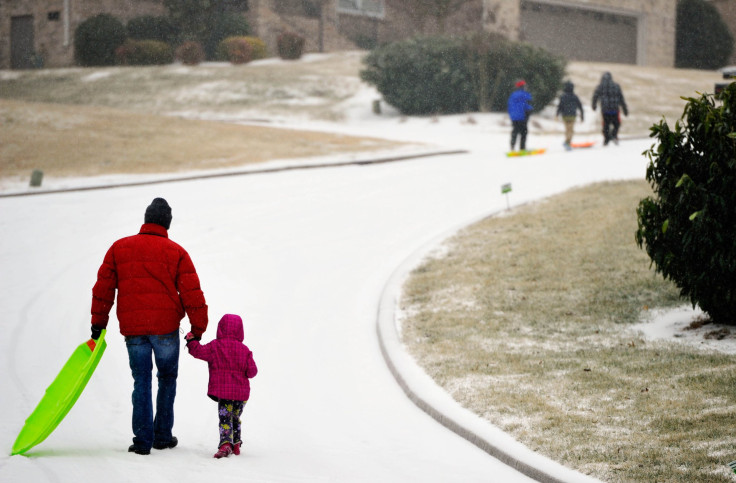Winter Storm Batters Southeast US Leaving Thousands Without Power, State Of Emergency Declared In Tennessee

Update as of 5:20 a.m. EST: A winter storm warning in the Washington area, which went into effect early Tuesday, will remain until Tuesday afternoon as the National Weather Service predicted six to eight inches of snow, according to media reports. Weather forecasters had said the area would receive the heaviest snow between 7 a.m. and 11 a.m., local time, according to The Associated Press.
More than 200,000 homes are without power in Arkansas, Georgia and the Carolinas, media reports said.
Original story:
A winter storm that pummeled major cities in southeastern United States has been moving through mid-Atlantic, leaving thousands without power late on Monday. The storm that deteriorated road services in Tennessee forced authorities to declare a state of emergency.
The number of power outages was rapidly increasing with 100,000 people without power in Georgia and 50,000 people without power in the Carolinas. Nearly 2,600 U.S. flights were canceled, with the hardest hit airports being in North Carolina and Tennessee. The National Weather Service reportedly said that southern West Virginia could get more than a foot of snow.
“The road conditions in Tennessee are deteriorating rapidly, motorists are backed up on two major interstates, and a number of counties are requesting assistance with various response actions,” Tennessee Emergency Management Agency said, according to local reports.
The winter storm, dubbed Octavia by the Weather Channel, headed for the Northeast, forcing federal offices and schools in Washington, D.C., to close on Tuesday, while a snow emergency will go into effect 7 a.m. Tuesday.
Weather experts reportedly said that temperatures across the eastern half of the U.S. will be below average for the entire week.
The latest storm comes after four major snowstorms descended on the Northeast in the past three weeks, and adversely affected Boston.
The winter storm is reportedly expected to reach Boston by Wednesday that received heavy amount of snow this weekend, making it the snowiest February for the city.
© Copyright IBTimes 2024. All rights reserved.











